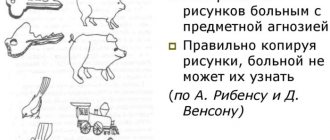Denial is a protective psychological mechanism that involves the individual’s conscious withdrawal from the traumatic reality in psychology. With the help of denial, an individual blocks negative thoughts, emotions, feelings and desires, consciously not wanting to accept them.
This method of escaping reality, according to S. Freud, gives him the opportunity to refuse to accept negative reality, and can be used to temporarily protect the psyche from a depressive state or develop into mania, dangerous to a person’s psychological health.
Concept and definition
The concept of “denial” was introduced into psychological science by Sigmund Freud, and his daughter, Anna, studied the phenomenon in more detail.
In the concept of “The Theory of Psychoanalysis,” S. Freud considered “denial” as one of the personality’s defense mechanisms, with the help of which an individual categorically refuses to accept the fact of a negative event. The most striking example of denial given by Freud is the death of a small child, accompanied by the refusal of the parents to accept the obvious, which leads to the emergence of a strong psychological belief that the baby has not died, but is somewhere nearby or will certainly appear soon.
Denial of reality, according to the professor, also occurs when people say or insist: “This simply cannot happen to me,” despite obvious evidence to the contrary (for example, in the case of a doctor telling a patient that he has a fatal disease). . According to Freud, denial is most typical in the psychology of young children, older individuals, or those with reduced intelligence.
Thus, a child, faced with the loss of a beloved pet, refuses to accept his death, convincing himself and others that the cat or dog is still alive or the aging parents do not want to accept the fact of the death of their son or daughter. People in adulthood with a stable psyche, according to Freud, can also sometimes use denial in highly traumatic situations, not accepting the fact of their illness or the loss of a loved one.
In his work “Venus in Fur,” S. Freud described “denial” as a way of taking into account the repressed. Like other defense mechanisms, “denial” refers to the “I” of a person, forced to confront threats from the outside world and the desires of the “It”, restrained by the “Super-I”.
Denial in psychology
Further work on the study of “denial” as a method of psychological defense was done by Anna Freud. In her work “The Self and Defense Mechanisms,” she described “denial” as a type of hallucinogenic wish fulfillment that manifests itself already in the first year of a child’s life. As it grows, "denial in fantasy" turns into "denial through words and actions."
The infantile ego of the child, in an attempt to get rid of unwanted facts, uses various external objects to stage in order to deny the current situation. According to Anna Freud, denial of reality is one of the motives of many children's games.
Adults, according to the psychologist, also use denial as one of the mechanisms of relationship with the child, calling him “adult”, “strong like a father” or “brave like a soldier”. Parents also resort to distorting reality if they want to reassure the child, informing him that the bruised knee will soon go away or the leaving mother will quickly return.
During her research, Anna Freud noticed that young children consciously engage in denial and may repeat a stereotyped phrase for their comfort, for example, calling a bitter medicine tasty.
The psychologist also noted that some gifts also help strengthen illusions. So, parents can give a girl a handbag so that she can imagine herself as an adult. And dolls are used to illustrate motherhood.
In her book, Anna Freud explained that the transition from fantasy to reality is quite difficult for a child, so his activity at some points may take on fantasy features.
The psychologist also noted that the mechanism of “denial of words and actions” is subject to two limitations:
- denial can exist as long as it does not interfere with the control of reality;
- the use of the denial mechanism is limited by the degree of agreement of the environment with the staging.
Substitution
This is a mechanism of psychological defense from an unpleasant situation, which is based on transferring a reaction from an inaccessible object to an accessible one or replacing an unacceptable action with an acceptable one.
Due to this transfer, the tension created by the unsatisfied need is discharged. Substitution is a defense that all people (both adults and children) necessarily use in everyday life. Thus, many people often do not have the opportunity not only to punish their offenders for their misdeeds or unfair behavior, but also to simply contradict them. Therefore, pets, parents, children, etc. can act as a “lightning rod” in a situation of anger.
Whims that cannot be directed at the leader (an unacceptable object for this) can perfectly well be directed at other performers as an object that is quite acceptable for this (“that’s who is to blame for everything”). In other words, substitution is the transfer of needs and desires to another, more accessible object. If it is impossible to satisfy a certain need with the help of one item, a person can find another item (more accessible) to satisfy it.
So, the essence of substitution is to redirect the reaction. If, in the presence of any need, the desired path to satisfy it is closed, human activity seeks another way out to achieve the goal. Protection is carried out through the transfer of excitation, unable to find a normal output, to another executive system. However, a person’s ability to reorient his actions from personally unacceptable to acceptable or from socially disapproved to approved is limited. The limitation is determined by the fact that the greatest satisfaction from an action that replaces what is desired occurs in a person when the motives for these actions are consistent.
Mechanism
Denial in psychology is (according to S. Freud) the first reaction to the pain of loss, bereavement, which is the initial stage of mistrust, or the first stage of experiencing grief. This condition can be observed in a person who has suddenly lost all property and income and in the first few seconds denies the unpleasant reality.
According to psychologists, denial is normally activated for several hours (or days), allowing the brain to realize and get used to the changed circumstances. After adaptation, other psychological defense mechanisms are activated, gradually leading to acceptance of the situation.
Denial, according to Anna Freud, develops in early childhood, when a small child fantasizes because he is not yet able to independently influence the world. At a more mature age, denial is transformed into a method of psychological defense, most often characteristic of suggestible people or those who suffer from chronic diseases of internal organs and systems.
A psychoanalyst who has been working in the field of classical psychoanalysis for more than 20 years, Tatyana Vladimirovna Ageeva notes that people with low stress tolerance can be in a state of denial of personal failures for quite a long time. The resulting feeling of hopelessness, helplessness and pain, accompanied by a feeling of psychological impasse, gradually leads to the development of regression, which can cause serious mental disorders.
Fantasy (dream)
It is a very common reaction to disappointments and failures.
For example, an insufficiently physically developed person can get pleasure from dreaming of participating in the World Championship, and a loser athlete can get pleasure from imagining all sorts of troubles happening to his opponent, which makes his feelings easier. Fantasies serve as compensation. They help maintain weak hopes, soften feelings of inferiority, and reduce the traumatic impact of insults and insults.
Freud said that a happy person never fantasizes, only a dissatisfied person does this. Unsatisfied desires are the driving forces of fantasies; each fantasy is a phenomenon of desire, a correction of reality, which does not satisfy the individual in some way.
In ambitious fantasies, the object of a person's desire is himself. In erotically colored desires, the object can become someone from a close or distant social environment, who in reality cannot be the object of desire.
And finally, fantasy plays the role of a substitute action, since a person cannot solve the real situation or believes that he cannot. And then, instead of a real situation, an imaginary, illusory situation is imagined, which is resolved by the fantasizing person. If it is difficult to resolve a real conflict, then a substitute conflict is resolved. In defensive fantasy, inner freedom from external coercion is palliatively experienced. The result of the psychoprotective use of fantasy can be living in a world of illusions.
Impact on life
Denial in psychology is a person’s conscious attempt to hide from the reality that destroys him, aimed at maintaining his inner peace and preventing possible negative consequences (A. Freud).
Denial manifests itself in the form of psychological defense of the psyche against a serious problem that has arisen and can have both beneficial and destructive consequences for the mental and physical health of the individual.
Psychologists include the following cases as justified cases of using denial:
When losing loved ones
A person faced with a serious problem associated with the loss of people close to him, including psychological protection of consciousness and psyche, temporarily protects himself from pain, horror and negative experiences associated with loss. By doing this, he puts him into a state in which his brain is able to make informed decisions, helping to cope with organizational issues, or gives him the opportunity to direct his forces to mobilize and save human life.
Doctor of Psychological Sciences Chirkova T.I. notes that a similar phenomenon can be observed when an individual who has lost a loved one is organizing a funeral or when a person during a natural disaster directs his strength to save his life and the people around him. After a certain time, his brain will accept and realize what happened, but at that moment nothing will threaten the person’s life and will give him the opportunity to survive the situation that has arisen.
When a serious (fatal) diagnosis is made
In most cases, a serious (or fatal) diagnosis is completely unexpected for the patient, causing his brain to temporarily refuse to accept the information and turn on “denial” as a defense mechanism. While in this state, the patient continues to live a normal life and undergoes treatment without plunging into a state of horror and depression.
According to psychologists, denial in this case is activated unconsciously, preserving the personality and sanity from serious shock. Medical psychologist and co-author of the monograph, “Denial as a phenomenon of psychological defense” Stupakova I.N., notes that after a certain time, an unconscious switching off of “denial” occurs, which occurs when new treatment methods appear or the brain accepts imminent death.
Conscious
“I’ll think about it tomorrow” - the phrase uttered by the heroine of the novel “Gone with the Wind” is, according to the psychoanalyst, member of the IPA (International Psychoanalytic Association), candidate of sciences E.V. Zhalunene, a vivid example of a positive, conscious denial of reality. With its help, the heroine of the novel Scarlett O'Hara postponed the acceptance of an unpleasant situation for a certain time, allowing her brain, while remaining in the usual reality, to gradually accept and understand the current situation.
According to the psychologist, the method used by the heroine of the novel is a classic example of the manifestation of “denial” as a method of psychological defense, since by postponing the acceptance of a problem until later it is possible:
- wait for the moment when life circumstances change, simultaneously changing the unpleasant situation;
- Allow the brain to gradually recognize and accept problems and find ways to overcome them.
Find another target
Displacement is a defense mechanism in which an emotional reaction is transferred from the person who caused it to another. For example, the director yelled at an employee, who remained silent in response. Later he yelled at his teenage son at home. Displacement often manifests itself in the form of aggression, but can also include other feelings.
Another example: a child who does not study well and ignores the teacher is most likely angry with his mother. The authoritarian parent causes his anger, but he cannot take it out: the price will be too high. But being rude to the teacher and not doing your homework is a completely accessible way to protect yourself.
Harm
Denial in psychology is a conscious process used by an individual to maintain peace of mind and complete refusal, detachment from negative information. Helping to prevent the onset of depression and help the brain gradually become aware of the problem, denial can have both positive and negative properties.
Prolonged denial, according to psychoanalyst and psychologist T.V. Ageeva, is dangerous due to the gradual destruction of a person’s psyche and life, since a problem that is not consciously noticed by him leads to the loss of skills and abilities, destroys social communication, contributing to the gradual development of mania.
The specialist notes that the denial mechanism is inherent in people suffering from gambling addiction, drug or alcohol addiction, as well as individuals dependent on them.
- In the first case, the addicted person lives in conscious denial of his problem, noting that there is nothing wrong with drinking a few glasses of wine every day. His fantasy belief is based on the fact that at any moment he can easily give up his addiction and display aggression at the slightest hint from others about a developing addiction.
- Dependent people (husbands, wives, other relatives) tend to deny the patient’s addiction no less zealously than he himself, which significantly complicates the diagnosis and treatment of alcohol, gaming or drug addiction.
Psychologists note that the mechanism of denial is difficult for a person to understand and can lead to the development of chronic dependence on alcohol, gambling or drugs. The effectiveness of treatment here can only be achieved when the person himself is fully aware and accepts his addiction, which is impossible with a conscious denial of the problem.
Denial, as a mechanism for avoiding traumatic reality (as noted by psychoanalyst and psychologist T. V. Ageeva) is inherent in psychology to people suffering from love addiction and not realizing the complete indifference towards them on the part of their partner. A typical example of this form of denial, according to the specialist, is a woman who is going to marry a man who uses her for his own selfish purposes.
The woman suffering from “falling in love” here denies the very possibility of such a situation, the coldness on the part of her partner and his betrayal, preferring to believe the words of her husband and consciously choosing a “happy reality” that is “convenient for herself” without realizing the subsequent painful outcome. In psychology, such a mechanism of mature denial is usually called rationalization, in which a person clearly argues for his conscious, fantasy behavior.
Doctor of Psychological Sciences T.I. Chirkova in her monograph “Psychology of Destruction” points out that in some cases the denial mechanism can completely disconnect a person from reality. Thus, a mother experiencing the death of her only small child denies his death and cannot accept the reality that is traumatic to her.
In her fantasy attempts, she creates in her mind another reality, where her child is alive and well. Being in this state, the woman continues to communicate with her child, replacing him, for example, with a doll, and reacts aggressively to all attempts by others to explain the malted situation to her.
Medical psychologist, I. Nyu Stupakova, in her monograph “Denial as a phenomenon of psychological defense” notes that the mechanism of denial is also used by extreme teenagers who daily expose themselves to mortal danger, do not feel fear and are not aware of the danger of the consequences of their actions.
The main danger of prolonged denial, according to Doctor of Psychology T.I. Chirkova, is the possibility of its degeneration into mania and manic syndrome, accompanied by a sharp rise in mood, strong bouts of joy and the appearance of increased performance. A person in this state very rarely rests, gradually leading himself to nervous exhaustion requiring emergency medical attention.
Examples from life
A good example is a person who abuses alcohol and his family members. Denial allows him not to see the problem, to refuse it. It is not surprising that alcoholics often use this defense mechanism, since otherwise they would have to not only admit their addiction, but also do something to get rid of it.
The most dangerous thing in this situation is not only that denial destroys a person both physically and morally, problems appear in the family and at work, relationships with other people deteriorate, etc. Children of alcoholics often become alcoholics themselves. And this is despite the fact that in childhood they vowed not to become like their fathers/mothers. If they admit that they have become the same, they will completely destroy the positive image of themselves as a person. In addition, for them it will be a betrayal of themselves in childhood, a deception of that small, pure and sincere man who promised himself to grow up differently.
Let's give another example. Already in adulthood, one of the woman’s two children died. Several years have passed, and she still continues to clean his room, while maintaining the order of things that was with him, talking only about him, fitting him into her plans. She doesn’t seem to notice the second child, just like everything that happens around her. The house, dacha, health status, family relationships are ignored. The woman looks like an insect frozen in amber resin. She lives in her reality.
Types of dangerous denial
Psychologists call “denial” a method of emotional defense that does not lead to a solution to the problem, but rather distorts a person’s thinking and behavior.
In modern psychology, “dangerous” denial is divided into 4 types:
| View | Characteristic |
| Priority Negation | In this case, a person inspires himself and the people who depend on him with the idea that now is not the right time to implement any plan (not enough money, global financial crisis, sick relatives). |
| Idealistic (infantile) denial | The person refuses to accept the problem, believing that over time it will disappear on its own. As an example of this situation, psychoanalyst T.N. Ageeva gives an example in which a woman suffering from violence from her husband believes that over time, thanks to her, he can change. |
| Aggressive denial | Actively defending his erroneous position, the individual aggressively rejects the opinions of other people trying to inform him about the problem that has arisen. At the same time, he may well understand the current negative situation, but does not want to allow himself to be immersed in the negative emotions associated with it. |
| Unqualified denial | The individual is well aware of the problem, but tries to pretend that he is not aware of it. In this case, “denial” contributes to the subconscious blocking of hearing, vision and memory, leading to the fact that the individual asking the same question unsuccessfully tries to get the answer he wants. |
The appearance of any of these types of denial requires the individual to:
- increasing the level of awareness;
- contacting a specialist to find a way out of the current situation.
How to get rid
There is no treatment for denial, which lasts several days and, according to experts, allows the brain to gradually get used to and realize the problem that has arisen. Psychological help is required for people who are faced with prolonged denial, which gradually develops into a rational form or manic syndrome.
In this case, the patient needs the help of a psychoanalyst, carried out in the form of individual and group consultations and helping to accept the current situation and then search for ways out of it.
With the development of manic disorder, the patient is also prescribed drug therapy, which consists of using:
- mood stabilizers (valproate, lithium or carbamazepine);
- atypical antipsychotics (olanzapine, risperidone or aripiprazole).
Upon completion of the main treatment, the patient is prescribed preventive therapy, including the use of medications and psychotherapeutic treatment.
Denial is a method of psychological defense that consists in unconsciously disconnecting the human psyche from the negative situation that has arisen. This state, which has its pros and cons, helps prevent the development of depression by giving the brain time to accept and understand the changed situation.
In this case, denial lasts no more than 2 days. The danger of prolonged denial is accompanied by a person’s complete withdrawal from the current situation, with his gradual immersion in a fantastic reality and the development of mania, requiring psychological treatment.











